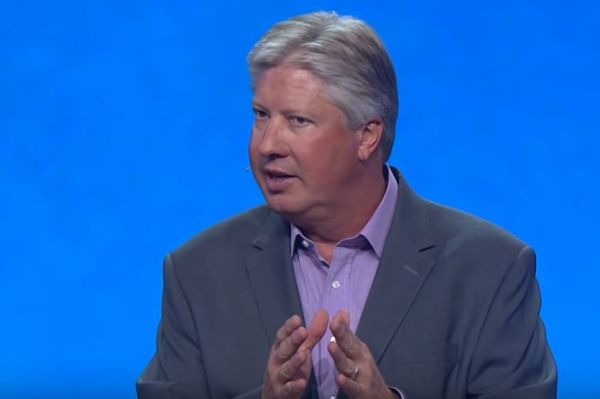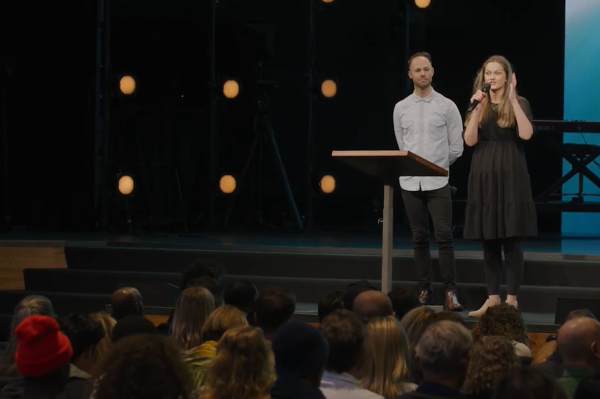A national emergency: A generation of undereducated children

While the national test scores for our nation’s children on standardized testing have been extremely discouraging for the past couple of decades, they have now fallen to a level that demands the recognition and declaration of a national emergency.
The 2022 National Assessment of Educational Progress (aka the “Nation’s Report Card”) has now been released and the alarm bells are clanging loudly. The average math scores fell to their lowest level since 1990 and the average reading scores fell to their lowest levels since 2004.
Nationwide, 38% of eighth graders fell below basic achievement levels for math. It is difficult to convey just how catastrophic these results are in terms of a whole generation of students’ educational future. The precipitous decline in students’ scores in math and reading cut across almost all ethnicities, impacting both girls and boys, and urban, suburban, and rural settings. Sadly, students in more poverty-stricken school districts suffered the most precipitous declines in proficiency scores.
By ethnicity, the drops in test scores were as follows: Native Americans (20 pts); Blacks (13 pts); Whites (6 pts), Asians (0).
And the news gets even worse. Students need to achieve reading proficiency by fourth grade in order to use reading to learn other subjects. Achieving math proficiency by eighth grade is one of the prime indicators of high school success.
It appears that while our nation’s vast educational establishment was failing America’s youth before the pandemic, the COVID-19 lockdowns provoked a virtual “failure spiral” for a whole generation of America’s young people. It is both a personal and national tragedy.
Clearly, the Educational Establishment and the Teachers’ Unions revealed their inability, or unwillingness, to put our nation’s students’ interests above their own.
So, what do we do? I believe we as a nation must go on the equivalent of a national emergency posture and consider novel and even revolutionary remedies in order to keep from wasting our most precious national resource — our children.
It appears that in many states, our nation’s parents, the Moms and Dads of the students who are being so underserved, are leading the way. They are demanding reforms and leading the efforts to empower parents to make critical choices about how their children are to be educated, who will teach them, and what they will be taught.
First, the problem is not money. America spends more on public education per pupil than any other country in the world, and yet our results are at best mediocre compared to many other countries in the developed world. Spending on K-12 education has tripled (adjusted for inflation) to a record $751.7 billion since 1970.
At the state level, states like Arizona and Arkansas are leading the way in empowering parents to make what they believe are the best choices for their children. Americans are increasingly asking themselves, “Why should you have to be wealthy to choose the best school for your child’s educational progress? If the Clintons and the Gores and the Obamas can choose excellent private schools for their children, why shouldn’t less wealthy parents be able to do the same?”
This question is especially pointed when you take into account that millions of parents feel (with good reason) the public schools are not doing even an adequate job of educating their children. The national standardized test scores certainly buttress the parents’ argument.
Consequently, many states are experimenting with giving parents back a portion of their money paid in state and local taxes and allowing parents to then use that money to meet the costs of alternate, private educational alternatives. Would that mean the end of the public schools? Not necessarily!
Former Secretary of Education, William Bennett, thoroughly disgusted with what he called the “Educational Blob” (the Educational Establishment, including the disgraceful Teachers Unions), would never reform themselves and improve their performance as long as they had a virtual monopoly on the nation’s youth. Only when they had to compete with other affordable educational choices for the nation’s children would they make the often-painful reforms necessary to become effective educational institutions once again.
After all, if the public schools were doing an efficient job educating the nation’s youth (and they weren’t trying to cram woke and gender-bending ideologies into the children’s impressionable brains) most parents would not be looking for affordable alternatives.
Looking back on my own educational experience, I was educated in the Houston Public Schools (K-12, 1952-1965 in a blue-collar, working-class neighborhood), and I received an education that allowed me to compete successfully for a full scholarship to Princeton University where I graduated magna cum laude four years later. And many of my classmates at Princeton were from similar backgrounds and the products of similar public education. Such public education is tragically no longer widely available to large segments of American youth.
It is indeed time to think outside the box in order to save our nation’s children from being generationally undereducated. It is time to empower parents to make the best decisions for their children. It really boils down to a simple question — do we trust parents or teachers to put the children first and do what is best for the students? I firmly trust our children’s parents to make the best choices for their own children.
Several general principles should be kept in mind when discovering how we solve our national educational crisis. First, the government has the right, and a significant interest, in mandating that a child’s primary activity between the ages of 5 to 18 should be education. Second, the government has the right to mandate certain subjects be placed in the curriculum (i.e., English, reading, math, science, history, civics, etc.). Third, parents should have primary decision-making authority as to their teachers and the content of the curriculum beyond the basic facts in each field.
Fourth, the parents should be assisted through tax credits and rebates etc., to be enabled to make the best choices for their children.
In empowering parents, they should have the option to send their children to schools of their choice — be it a Catholic school, a Baptist school, a Muslim school, a Jewish school a Darwin school, and agnostic school, etc. This should not cause a problem concerning the First Amendment’s Establishment Clause. In 2002 in the Zelman v. Simmons-Harris decision, the U.S. Supreme Court ruled that government giving financial aid to parents to defray the tuition cost for alternative schooling (even at a religious school) did not violate the Establishment Clause because the aid was given to the parents who then were free to decide whether they used it for tuition at a secular or a religious school.
Every concerned American should be encouraging all elements of our society to be engaged (parents, grandparents, aunts, uncles, older siblings) in rescuing our youth from this truly national crisis in education. We should think and experiment as imaginatively as possible, always asking the question, “will it help the children?”
We can all contribute funds for scholarships. I would ask every church in America to ask itself how it can help rescue the children of this generation from the perils of this educational tsunami threatening their and our, future.
Dr. Richard Land, BA (Princeton, magna cum laude); D.Phil. (Oxford); Th.M (New Orleans Seminary). Dr. Land served as President of Southern Evangelical Seminary from July 2013 until July 2021. Upon his retirement, he was honored as President Emeritus and he continues to serve as an Adjunct Professor of Theology & Ethics. Dr. Land previously served as President of the Southern Baptist Convention's Ethics & Religious Liberty Commission (1988-2013) where he was also honored as President Emeritus upon his retirement. Dr. Land has also served as an Executive Editor and columnist for The Christian Post since 2011.
Dr. Land explores many timely and critical topics in his daily radio feature, “Bringing Every Thought Captive,” and in his weekly column for CP.





















